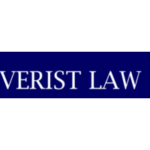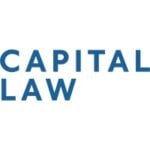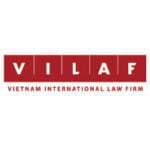-
Please briefly describe the regulatory framework and landscape of both equity and debt capital market in your jurisdiction, including the major regimes, regulators and authorities.
Equity and Debt Capital Markets are regulated under the following laws and regulations:
- the Turkish Commercial Code (Law No. 6102) (published in the Official Gazette dated February 14, 2011, No. 27846) (the “Turkish Commercial Code”);
- the Capital Market Law (Law No. 6362) (published in the Official Gazette dated December 30, 2012, No. 28513) (the “Capital Market Law”);
- the Communique No. II-5.1 on Prospectus and Issuance Certificates (published in the Official Gazette dated June 22, 2013, No. 28685) (the “Communiqué No. II-5.1”);
- the Communiqué No. II-5.2 on the Sale of Capital Market Instruments (published in the Official Gazette dated June 28, 2013, No. 28691) (the “Communiqué No. II-5.2”);
- the Communiqué No. VII-128.1 on Shares (published in the Official Gazette dated June 22, 2013, No. 28685) (the “Communiqué No. VII-128.1”);
- the Communiqué No. VII-128.4 regarding the Foreign Capital Market Instruments and Depository Receipts and Foreign Mutual Fund Units (published in the Official Gazette dated October 23, 2013, No. 28800) (the “Communiqué No. VII-128.4”);
- the Communiqué No. VII-128.8 on Debt Instruments (published in the Official Gazette dated June 7, 2013 No. 28670) (the “Communiqué No. VII-128.8”); and
- Borsa İstanbul Listing Directive (the “Listing Directive”).
As stipulated under the Capital Market Law, the Capital Market Board (the “CMB”) is authorized to monitor and supervise activities and transactions of all institutions and organisations and other related real persons and legal entities that fall within the scope of Capital Market Law and its secondary legislation.
Borsa Istanbul A.Ş. (the “BIST”), established as per Article 138 of the Capital Market Law, is the sole securities exchange entity operating in Türkiye. Markets that are currently organised under BIST are: (i) equity market, (ii) debt securities market; (iii) derivatives market; and (iv) precious metals and diamond markets.
İstanbul Takas ve Saklama Bankası A.Ş. (the “Takasbank”) is the authorised entity in Türkiye on providing cash and securities settlement transactions as the central clearing and settlement institution for securities traded on BIST. The general settlement principle of Takasbank is to conclude settlement on the second business day following the transaction (i.e., T+2).
Merkezi Kayıt Kuruluşu A.Ş. (Central Registry Agency) (the “MKK“) is the authorised entity in Türkiye for central custody and dematerialisation of capital market instruments. MKK also monitors these securities and the rights attached on them on both membership and ownership basis.
-
Please briefly describe the common exemptions for securities offerings without prospectus and/or regulatory registration in your market.
Pursuant to Article 6(1) of the Communiqué II-5.1, prospectus exemptions are as follows:
- public offerings made to investors where, for each offering individually, the minimum amount per investor is at least TRY 7,500,000 worth of capital market instruments;
- public offerings where the nominal value per unit is no less than TRY 7,500,000;
- offerings exclusively targeting qualified investors and securities issued for trading only among such investors on the exchange; and
- where capital market instruments are issued for the purpose of a merger, transfer of assets, demerger, contribution of a portion of assets as capital in kind, or share exchange, in accordance with the CMB’s regulations on mergers and demergers, and such instruments are admitted to trading on the stock exchange, provided that a public disclosure announcement, containing the necessary information and in the format prescribed by the CMB, is duly published.
As per Article 6(2) of the Communiqué II-5.2, a prospectus is not required for the following:
- the sale of capital market instruments exclusively for qualified investors;
- private placements of capital market instruments;
- where the shares subject to the transaction involve denomination changes, series, share consolidations or splits, provided that such actions do not result in a change in the issuer’s share capital;
- where capital market instruments are issued for the purpose of a merger, transfer of assets, demerger, contribution of a portion of assets as capital in kind, or share exchange, in accordance with the CMB’s regulations on mergers and demergers, provided that a public disclosure announcement, containing the necessary information and in the format prescribed by the CMB, is duly published;
- in issuances of gratis shares, including distributions of dividends in the form of shares;
- where consideration in a mandatory tender offer is paid through capital market instruments, in accordance with the relevant regulations of the CMB; and
- where capital market instruments are issued by way of conversion, exchange, or exercise of rights under previously issued instruments, provided that the relevant prospectus and required documentation have already been published and the newly issued shares belong to the same group as the issuer’s listed shares, pursuant to the applicable regulations of the CMB.
Although a prospectus may not be required in various scenarios, an issuance certificate pursuant to Article 5(2) and Article 12 of the Communiqué II-5.2, must be prepared and submitted for CMB approval along with the necessary documents specified by the CMB, such as Articles of Association, General Assembly/Board of Directors resolution and financial statements of the company. Furthermore, a declaration must be signed by investors, containing information about risks associated with the offered capital market instruments, the terms and conditions of the private placement, and a statement expressing their understanding and acceptance of the same.
Separately, pursuant to Article 4(1) of the Capital Market Law, crowdfunding activities conducted through platforms authorized by the CMB are exempt from both the prospectus and issuance certificate requirements, provided they are carried out in accordance with applicable CMB regulations.
-
Please describe the insider trading regulations and describe what a public company would generally do to prevent any violation of such regulations.
The Capital Market Law regulates abusive conduct in the capital markets and sets forth heavy penalties for the promotion of easeful and balanced operation of the market. Abusive actions regarding capital markets set forth by the Capital Market Law are:
- market abuse actions;
- insider trading;
- manipulation;
- unlawful public offering and unauthorised capital market activity;
- embezzlement and forgery;
- not providing requested information and not submitting requested documents, and obstruction of auditing;
- fraud in legal books, accounting records, financial statements and reports; and
- breach of the obligation to keep secrets confidential.
In particular, the CMB promulgated the Communiqué No. VI-104.1 Regarding Market Abuse Actions (published in the Official Gazette dated January 21, 2014, No. 28889); the Communiqué No. V-102.1 on Obligation of Notification regarding Insider Trading and Manipulation Crimes (published in the Official Gazette dated January 21, 2014, No. 28889); and the Communiqué No. V.101-1 Regarding Measures to Apply on the Investigations of Insider Trading and Manipulation (published in the Official Gazette dated January 21, 2014, No. 28889) in order to regulate the relevant abusive conducts in detail.
In this regard, trading of securities by individuals with access to non-public information to benefit from insider information that is known as insider trading and regulated under Capital Market Law as misuse of information. These actions are punishable with three to five years of imprisonment or judicial monetary fines. It is essential for individuals possessing inside information or continuous information to maintain the confidentiality of such information before the necessary public disclosures are made in accordance with the regulations. Public companies are required to report a list of insiders to authorities. They may also implement internal policies to prevent insider trading.
-
What are the key remedies available to shareholders of public companies / debt securities holders in your market?
The Capital Market Law grants the CMB with a broad supervisory power and authorises the CMB to take any necessary measures in case of a breach or attempted breach of the Capital Market Law and its secondary legislation. In this regard, the CMB is authorised to impose preventive measures and administrative monetary fines; and apply for public prosecution of the unlawful public offerors where deemed necessary. Investors can be compensated for their claims arising from failure to fulfil cash payment or capital market instrument delivery obligations with regard to assets belonging to investors kept or managed by investment firms from the Investor Compensation Centre, up to a certain amount determined on an annual basis.
Additionally, investors may bring claims before civil courts and make use of legal remedies under the Turkish Commercial Code, such as challenging general assembly or board decisions and seeking compensation from board members. Holders of debt securities also have access to remedies under enforcement law and may exercise their rights under Communiqué No. II-31/A.1 on Debt Instrument Holders’ Board (published in the Official Gazette dated September 11, 2020, No. 31241), including objecting to decisions that materially alter the terms of the instrument.
-
Please describe the expected outlook in fund raising activities (equity and debt) in your market in 2025.
In 2025, Turkish capital markets remain active amid a broader macroeconomic stabilization programme. Elevated Turkish lira interest rates as part of ongoing inflation control efforts have increased the appeal of alternatives to bank finance. Strong issuer interest in ECM continues, with the CMB handling a high volume of IPO applications. Meanwhile, foreign currency DCM remain attractive, supporting corporate funding needs alongside traditional banking channels. Anticipation of a potential monetary easing cycle in the latter half of the year may support the investor confidence and further sustain capital markets activity in Türkiye. Turkish capital markets are expected to maintain its current momentum through the year, playing a key role under the current monetary policy framework.
-
What are the essential requirements for listing a company in the main stock exchange(s) in your market? Please describe the simplified regime (if any) for company seeking a dual-listing in your market.
The equity market of BIST consists of the following sub-markets: (i) BIST Stars; (ii) BIST Main; (iii) BIST Submarket; (iv) Watchlist (the WL); (v) Structured Products and Fund Market (the SPFM); (vi) Venture Capital Market (the VCM); and (vii) Commodity Market.
As regards initial public offerings (IPOs), Communiqué No. VII-128.1 stipulates certain prerequisites to be satisfied for companies that are not publicly held previously.
Furthermore, shares of the companies, listed via IPO can be traded only on BIST Stars, BIST Main, BIST SubMarket or the VCM. Essential listing requirements for BIST Stars, BIST Main and BIST SubMarket are as follows:
- at least two years shall have passed since the incorporation of the company;
- financial situation of the company shall enable it to carry out and continue its business operations in a healthy manner;
- no restrictions shall exist on the shares that would prevent shareholders from exercising their rights. The articles of association shall contain no provision restricting the transfer or circulation of the shares to be traded on the BIST;
- except for situations deemed acceptable by the BIST, suspension of the issuer’s operations for more than three months within the past year shall not have occurred, nor shall the issuer have been subject to liquidation, concordat, bankruptcy postponement, or other similar proceedings; and
- the company shall not be subject to any significant legal proceedings affecting its activities; and it should be documented by a legal report issued by a lawyer, who is not directly or indirectly involved with the respective company. Such legal report also sets out information on legal status of the company including information on its incorporation and business operations, as well as compliance of its shares with the applicable laws and regulations.
Other than the general requirements above, for IPOs, the specific requirements for a listing on BIST Stars, BIST Main, BIST SubMarket are as follows:
BIST Stars BIST Main BIST SubMarket Market value of shares offered to the public Minimum TRY 2,000,000,000 Minimum TRY 500,000,000 Minimum TRY 200,000,000 Minimum ratio of nominal value of shares offered to public to the capital 10% 20% 25% Net profit in annual financial statements of the past years audited by independent auditors Last 2 years Last 2 years Last 2 years Shareholders’ equity over capital ratio in the recent financial statements audited by independent auditors Over 1 Over 1 Over 1.25 Furthermore, pursuant to the Communiqué No.VII-128.4, no offer (including public offer, or private placements of foreign capital market instruments to Turkish qualified investors or pre-defined allocated investors without offering those instruments to public), by any means, of any securities, money market instruments, and any other capital market instruments outside Türkiye to Turkish residents can be made without obtaining the necessary approval from the CMB.
Therefore, foreign entities cannot offer or market to Turkish residents, securities, money market instruments, and any other capital market instruments without obtaining the necessary approval from the CMB.
Accordingly, following the approval from CMB, as per Article 22 of the Listing Directive, where the shares of a foreign entity are to be admitted to dual listing without a public offering, the market value and the ratio of the publicly offered shares to the paid-in or issued capital, as referenced in table above, shall be assessed based on the values recorded on the foreign stock exchange as of the date of the listing decision.
Moreover, capital market instruments traded on the main markets of foreign exchanges designated by Borsa İstanbul’s Board may be fast-track listed and traded on Borsa İstanbul without any additional conditions, provided that the prospectus or issuance certificate has been duly approved by the CMB.
-
Are weighted voting rights in listed companies allowed in your market? What special rights are allowed to be reserved (if any) to certain shareholders after a company goes public?
Yes, under Capital Market Law, voting preference (limited to 15 votes per share) and other preferences such as board representation preference (may not exceed half of the total members), dividend preference, or liquidation preference, as well as other preferences recognized under the Turkish Commercial Code, are allowed in listed companies.
Kindly note that pursuant to Article 28 of the Capital Market Law, companies are required to publicly disclose all existing preferred shares in a clear and comprehensible manner at the time of their initial public offering. Furthermore, CMB may also require certain changes to the scope of the preference.
Moreover, except for cases where preferences are deemed necessary and reasonable due to the nature of the company’s activities, voting and board representation preference shall be revoked by a decision of the CMB if the publicly held company incurs losses for five consecutive years based on duly prepared financial statements. However, this rule does not apply where the preferred shares are held by state institutions or entities.
-
Is listing of SPAC allowed in your market? If so, please briefly describe the relevant regulations for SPAC listing.
Yes, SPAC are recognised under the Communiqué No. II-23.2 on Mergers and Demergers (published in the Official Gazette dated December 28, 2013, No. 28865) and allowed under the Listing Directive.
Pursuant to Article 4(1)(b) of the Communiqué No. II-23.2 on Mergers and Demergers, a SPAC is defined as a company established for the purpose of merging with a non-public company, in line with a predetermined time frame and investment strategy, and which publicly offers at least half of its post-IPO share capital. The company must not engage in any activity other than achieving the merger objective. It undertakes to allocate up to 10% of the proceeds from the public offering in one or more instruments such as deposits, Turkish government domestic debt securities, or similar investment vehicles for the purpose of refunding such amount to non-founder shareholders in the event that the intended merger is not completed within the predetermined time period. The company must publicly disclose its cash management policy in the prospectus for the above-mentioned proceeds, and carry out a voluntary share repurchase for shareholders who vote against the merger at the general assembly, or for all non-founder shareholders in the event of liquidation. The trade name of such a company must include the term “birleşme amaçlı ortaklık”.
As per Article 11 of Listing Directive, listing requirements on BIST for SPACs are as follows:
- market value of the publicly offered shares must be at least 2 billion TRY, and these shares must constitute at least 50% of the company’s paid-in or issued capital after the public offering.
- at least 80% of the publicly offered shares must be sold to institutional investors.
- total shares owned by the founders, board members, and authorised management personnel must collectively represent at least 10% of the company’s capital.
- founders, board members, and authorised management personnel must provide an undertaking to BIST, committing not to sell their pre-public offering shares (either on or off the exchange) from the public offering date until the merger date, and for an additional 12 months following the merger process.
-
Please describe the potential prospectus liabilities in your market.
Pursuant to Article 10 of the Capital Market Law and Article 25 of the Communiqué No. II-5.1, the issuers bear liability for damages stemming from any inaccurate, misleading, or incomplete information presented in the prospectus. Should compensation prove unobtainable from the issuer, or if it becomes unequivocally evident that such compensation will not be possible, then the following parties may also be held liable to the extent that their fault and the specific circumstances contributed to the damages:
- offering shareholders
- lead intermediary institution managing the offering
- any guarantor (if applicable)
- members of the issuer’s board of directors
As per Article 32 of the Capital Market Law, within the scope of Article 10, the persons specified as liable therein, as well as those who sign on their own behalf or on behalf of legal entities, the prospectus, and other public disclosure documents required by the CMB the purpose of informing the public, shall be jointly and severally liable for any damages arising from inaccurate, misleading, or incomplete information contained in such documents.
Furthermore, persons and institutions that prepare reports, including those prepared by independent audit, credit rating, or valuation firms, which are either included in public disclosure documents or serve as a basis for such documents, shall also be held liable under the provisions of the Capital Market Law.
Kindly note that no legal liability shall arise based solely on the summary, unless the summary is misleading, inaccurate, or inconsistent when read together with the other parts of the prospectus.
-
Please describe the key minority shareholder protection mechanisms in your market.
Minority rights, applicable to all joint stock companies, are regulated under the Turkish Commercial Code, and may be exercised by shareholders representing at least one-twentieth of the share capital in public joint stock companies. These include among others: filing for the dismissal and reappointment of the auditor (Article 399(4)); requesting a general assembly meeting or agenda amendment (Articles 411–412); postponing the discussion of financial statements (Article 420); requesting a special auditor and applying for court-appointed special audit (Article 439); requesting issuance of registered share certificates (Article 486); filing for dissolution with just cause (Article 531); and objecting to discharge from liability arising from incorporation or capital increases (Article 559).
Please be reminded that all shareholders still retain the right to pursue the legal remedies such as challenging general assembly or board decisions and seeking compensation from board members before Turkish courts.
-
What are the common types of transactions involving public companies that would require regulatory scrutiny and/or disclosure?
Pursuant to Article 23 of the Capital Market Law and Article 4 of the Communiqué No. II-23.3 on Material Transactions and the Dissenters’ Right (published in the Official Gazette dated June 27, 2020, No. 31168) (the “Communiqué No. II-23.3”), transactions involving public companies that require regulatory scrutiny and/or disclosure include:
- mergers & demergers;
- change of company type;
- transfer of significant amount of assets or granting limited rights in rem over such; and
- issuing preferred shares or changing the scope of preferences
In addition to the above, the CMB may also classify other transactions as material if they result in fundamental changes to the company’s core business or ordinary commercial activities and are likely to significantly influence investors’ decisions when assessed in their entirety.
Kindly note that as per Article 7 of the Communiqué No. II-23.3, in order for a material transaction to be carried out, the board of directors must adopt a resolution setting out the key terms of the transaction, which must then be submitted to and approved by the general assembly.
-
Please describe the scope of related parties and introduce any special regulatory approval and disclosure mechanism in place for related parties’ transactions.
A related party, as defined by Turkish Accounting Standard 24, is a person or entity that can control, jointly control, or significantly influence the reporting entity, or is part of its key management. It also includes their close family members and any businesses they control. Companies within the same group, like subsidiaries or sister companies, are also considered related parties. Please refer to Turkish Accounting Standards for further details.
Pursuant to Article 9 and 10 of the Communiqué No. II-17.1 on Corporate Governance (published in the Official Gazette dated January 3, 2014, No. 28871) (the “Communiqué No. II-17.1”) related party transactions require a board resolution. In addition, all such transactions must be duly disclosed on the Public Disclosure Platform.
Kindly note that related party transactions are subject to stricter rules when the transaction amount (or in some cases, the book value) exceed certain materiality thresholds in reference to total assets, annual revenues or company valuation as specified under Communiqué No. II-17.1. If the transaction amount passes 5%, a valuation by CMB designated institution is required. If it exceeds 10%, approval by a majority of independent board members is also needed. If it is not approved by a majority of independent board members, the general assembly must approve the deal, with related parties excluded from voting. There is also different set of rules applicable to recurring and continuous related party transactions.
-
What are the key continuing obligations of a substantial shareholder and controlling shareholder of a listed company?
Pursuant to the Communiqué No. II-15.1 on Disclosure of Material Events (published in the Official Gazette dated January 23, 2014, No. 28891) (the “Communiqué No. II-15.1”) disclosures on share title transfers or voting rights in a publicly traded company in Türkiye required to be made through the Public Disclosure Platform, if the respective transferee holds as a result of the intended transfer equals, exceeds or falls below 5, 10, 15, 20, 25, 33, 50, 67 or 95 per cent of the total issued and outstanding shares of such company. The disclosure obligation also applies to capital market instruments that entitle their holder to acquire voting rights to listed shares. Any purchase or sales transaction on the shares of a company that is not a publicly traded company, however, which has bonds listed on the stock exchange, shall be subject to the share disclosure obligation where only the thresholds 25, 50 and 67 per cent will be applicable.
Additionally, any person in a managerial position at a listed company, as well as their close relatives or the company’s controlling shareholder, must disclose transactions involving the company’s shares or other capital market instruments once the total value calculated based on the collective position such transactions reach TRY 12,000,000 (for 2025) within a calendar year.
Please be reminded that if the change in shareholding or the voting rights result from a direct shareholding by an individual or legal entity, the MKK shall make the disclosure. However, if the change occurs through indirect ownership or coordinated action with others, it is the responsibility of the relevant persons to disclose such change.
-
What corporate actions or transactions require shareholders’ approval?
Corporate actions or transactions that require shareholders’ approval under the Turkish Commercial Code and Capital Market Law include, but are not limited to, the following:
- amendments to the articles of association;
- approval of annual accounts and activity report, allocation of profits, dividend distribution and use of reserves;
- appointment of auditors;
- appointment of board members, determination of their term, remuneration and grant of release from their liabilities;
- capital increases (unless the company is subject to the registered capital);
- transfer of substantial assets;
- decision on winding-up;
- material transactions under Capital Market Law (please refer to Question 11); and
- related party transactions exceeding materiality thresholds (please refer to Question 12).
-
Under what circumstances a mandatory tender offer would be triggered? Is there any exemption commonly relied upon?
Pursuant to Article 11 of the Communiqué No. II-26.1 on Tender Offer (published in the Official Gazette dated January 23, 2014, No. 28891) (the “Communiqué No. II-26.1”), any person who, alone or coordinated action with others, directly or indirectly acquires shares or voting rights that grant management control over a company is required to make a mandatory tender offer to purchase the shares of other shareholders who held shares on the date the acquisition was publicly disclosed.
Kindly note that CMB may grant exemption on a case-by-case basis. Moreover, as per Article 18 of the Communiqué No. II-26.1, CMB may rely on the following cases to grant an exemption from the mandatory tender offer:
- capital structure changes to support a financially distressed company;
- control acquired without exercising rights or changing the board, and shares are (or will be) sold;
- change of control at the parent company without intent to control the listed subsidiary;
- sale of public company shares in the context of privatisation;
- SPAC mergers with exit rights for dissenting shareholders;
- transfer of shares pledged as collateral to a bank or its special purpose vehicle (SPV), appropriation of such shares, and subsequent sale of those shares by the bank or SPV to third parties;
- share transfers required to meet regulatory shareholder qualifications; and
- share acquisitions through inheritance, marital property regimes, or legal obligations.
Furthermore, under Article 14 of the Communiqué No. II-26.1, there are cases where the mandatory tender requirement is not triggered. These, among others (Please refer to Article 14 for other cases), include: (i) control acquired following a voluntary tender offer; (ii) control agreements without share acquisition provided that they are approved by the general assembly and dissenting shareholders are granted an exit right, (iii) where the control is regained via additional purchases after falling below the threshold, and (iv) control acquired through intra-group share transfers where the persons considered to be acting in coordination or who have already made joint tender offer.
-
Are public companies required to engage any independent directors? What are the specific requirements for a director to be considered as “independent”?
Under Principle 4.3.4. of the Communiqué No. II-17.1 Annex I, the board of directors of a public company must be composed of at least one-third independent members, and in any case, the number of independent directors shall not be less than two.
Kindly note that subject to the exemptions set out in the Communiqué No. II-17.1, the one-third requirement may not apply depending on the company’s designated corporate governance group, which is determined based on its average market capitalization and the average value of its publicly offered shares.
Pursuant to Principle 4.3.6. of the Communiqué No. II-17.1 Annex I, a board member who satisfies all following conditions shall be deemed an independent member:
- no employment within the last five years in a managerial position with significant duties and responsibilities, and no shareholding above 5%, or material commercial relationship with; (i) the company, (ii) its subsidiaries under control or significant influence, (iii) shareholders who hold control or significant influence over the company, other entities controlled by such shareholders (whether directly by the individual or through their spouse or relatives up to the second degree by blood or marriage);
- no board membership, managerial position, or 5%+ shareholding in companies that provided or received significant goods or services (e.g. audit, consultancy, or rating) to/from the company during the past five years;
- sufficient professional education, knowledge, and experience to fulfil the responsibilities of an independent board member;
- no full-time employment in public institutions or organizations following election, except for university faculty positions, and provided this complies with applicable rules;
- tax residency in Türkiye as defined under Income Tax Law No. 193;
- high ethical standards, professional reputation, and the ability to act independently and impartially in shareholder-company conflicts, and to consider the rights of stakeholders;
- ability to dedicate sufficient time to follow company activities and fulfil board duties;
- no service exceeding six years as a board member of the company within the last ten years;
- not holding independent board memberships in more than three group companies controlled by the same shareholders or more than five listed companies in total; and
- not acting as the registered representative of a legal entity serving on the board.
-
What financial statements are required for a public equity offering? When do financial statements go stale? Under what accounting standards do the financial statements have to be prepared?
Financial statements must be prepared in accordance with Turkish Financial Reporting Standards, which are consistent with International Financial Reporting Standards. As per Article 11 of the Communiqué No. II-5.1, public equity offerings require the submission of the following financial statements for each applicable period;
Sales Period Audited Financial Statements to be Included in the Prospectus 1 January – 15 February Financial statements for the last three years or for the three years preceding the current year, along with interim financial statements for the last nine-month period. 16 February – 15 May Financial statements for the last three years 16 May – 15 August Financial statements for the last three years and interim financial statements for the most recent three-month period 16 August – 15 November Financial statements for the last three years and interim financial statements for the most recent six-month period 16 November – 31 December Financial statements for the last three years and interim financial statements for the most recent nine-month period Pursuant to Article 11(1)(ç), if the offering begins within 15 days after the end of a financial reporting period, the audited financial statements for the new period may be submitted as an annex to the prospectus. In this case, the prospectus does not need to be updated, unless the issuer or offering party opts to do so voluntarily.
-
Please describe the key environmental, social, and governance (ESG) and sustainability requirements in your market. What are the key recent changes or potential changes?
Pursuant to Article 1(5) and Article 8 of the Communiqué No. II-17.1, annual activity reports must include information on whether the sustainability principles announced by the CMB have been implemented. In cases where these principles are not implemented, the report must provide a reasoned explanation along with disclosures regarding the impacts on environmental and social risk management arising from partial or non-compliance. If there is a significant change related to these disclosures during the reporting period, such changes must also be included in the interim activity reports. The principles governing the content and publication of compliance reports on corporate governance are determined and announced by the CMB. CMB has also issued guidelines on green and sustainable bonds, as well as green and sustainable lease certificates.
The recent enactment of the Climate Law (Law No. 7552) (published in the Official Gazette dated July 9, 2025, No. 32951) has introduced additional climate-related obligations for Turkish companies, while outlining climate justice, precaution, participation, integration, sustainability, transparency, just transition, and progress, taking into account the principle of common but differentiated responsibilities and respective capabilities.
-
What are the typical offering structures for issuing debt securities in your jurisdiction? Does the holding company issue debt securities directly or indirectly (by setting up a SPV)? What are the main purposes for issuing debt securities indirectly?
There is currently no notable trend in the Turkish market toward the use of SPVs for debt capital markets transactions. Under prevailing practice, issuers typically offer debt instruments directly. Common issuance methods include Eurobond offerings in foreign markets and private placements to qualified investors. Public offerings, particularly those targeting retail investors, remain relatively uncommon.
Kindly note that in the field of interest-free finance, lease certificates (sukuk) involve an asset leasing company (varlık kiralama şirketi). This structure is required both by the structure of the sukuk and by Communiqué No. III-61.1 on Lease Certificates (published in the Official Gazette dated June 6, 2013, No. 28670). These authorised entities are responsible for transferring the proceeds of the issuance to the originating company and act as intermediaries between the issuer and investors throughout the life of the instrument. Sukuk issuances have also become an increasingly reliable alternative financing form for both Turkish sovereign and corporate issuers.
-
Are trust structures adopted for issuing debt securities in your jurisdiction? What are the typical trustee’s duties and obligations under the trust structure after the offering?
Pursuant to the Capital Market Law and the Article 4 of Communiqué No. II-31/B.1 on the Procedures and Principles Regarding the Issuance of Asset-Backed Securities (published in the Official Gazette dated January 26, 2022, No. 31731) (the “Communiqué No. II-31/B.1”), the security admin (teminat yöneticisi), based on the rules and procedures set forth in the relevant Communiqué, may be vested with ownership of the collateral assets or granted limited in rem rights over the collateral assets in order to secure the issuer’s obligations under the capital market instruments. Such rights enable the security agent to manage, safeguard, and hold the collateral in custody throughout the term of the instrument.
The security admin shall prepare a collateral report, in the format set out in Annex-1, within ten business days in the following cases:
- at the end of each six-month period following the issuance of the relevant capital markets instruments;
- upon the occurrence of an event of default or any other event resulting in the same legal consequences;
- upon completion of the enforcement or liquidation of the collateral assets; and
- in other cases as may be requested by the CMB.
The collateral report must be publicly disclosed through the Public Disclosure Platform on the business day immediately following the date of execution of the report.
The security admin also has on-going disclosure obligations under Article 17 of the Communiqué No. II-31/B.1. Following cases trigger material event disclosure:
- amendment to the security admin agreement;
- impairment of the independence (as defined in the Communiqué) of the security admin;
- decrease of more than 25% in the value of the collateral as of the transfer or encumbrance date, and upon each additional 20% decrease thereafter;
- failure to perform any obligation under the security admin agreement, other than payments related tot the capital market instruments;
- in the event that the payment obligations under the capital markets instrument must be satisfied from the collateral and various stages of such process;
- occurrence of an event of default or any event resulting in equivalent legal consequences; and
- any other circumstances deemed necessary by the CMB.
-
What are the typical credit enhancement measure (guarantee, letter of credit or keep-well deed) for issuing debt securities? Please describe the factors when considering which credit enhancement structure to adopt.
Kindly note that under Turkish law, credit enhancement measures such as guarantees and letters of credit are used in practice, and the enforceability of such instruments depends on legal requirements, including form conditions and rules applicable to such measures under Turkish enforcement law. In addition, as per Article 7(2) of Communiqué No. II-5.1, in the event that the obligations arising from the publicly offered capital markets instruments are guaranteed by a third party, the prospectus must also include information regarding the guarantor and the nature of the guarantee..
Moreover, for securitisations under Turkish law, Article 19 of the Communiqué No. III-58.1 on Asset-Backed and Mortgage-Backed Securities (published in the Official Gazette dated January 9, 2014, No. 28877) (the “Communiqué No. III-58.1”) sets out that, in order to protect investor rights against the risk that cash flows from underlying assets may fall short of covering scheduled payments to investors, the following credit enhancement mechanisms may be used:
- insurance, guarantee, letter of guarantee or other similar types of security arrangements with the originator or another third party;
- diversify the securities with different rights and classes;
- assets in excess of its liabilities can be transferred to reserve accounts; and
- any other mechanism approved by the CMB.
-
What are the typical restrictive covenants in the debt securities’ terms and conditions, if any, and the purposes of such restrictive covenants? What are the future development trends of such restrictive covenants in your jurisdiction?
While most locally issued debt securities are offered without covenants, some issuances may include restrictions, such as financial ratio (e.g. EBITDA) requirements, imposed on the issuer under specific conditions.
The entry into force of Communiqué No. II-31/A.1 on Debt Instrument Holders’ Board (published in the Official Gazette dated September 11, 2020, No. 31241) marked a step toward resolving the collective action problem and created a framework for the potential enforcement of covenants. That said, we have not determined any prevailing trend in the market toward the widespread adoption of covenants.
-
In general, who is responsible for any profit/income/withholding taxes related to the payment of debt securities’ interests in your jurisdiction?
Debt securities issued domestically are subject to withholding tax. Banks and intermediary institutions are responsible for withholding taxes related to interest payments on these securities. Investors should consult tax advisors regarding the applicable withholding tax on domestic sovereign and corporate debt securities, and to determine whether such withholding constitutes a final tax.
-
What are the main listing requirements for listing debt securities in your jurisdiction? What are the continuing obligations of the issuer after the listing?
Debt securities can be listed on Borsa Istanbul either through a public offering or by sales to qualified investors. As with all public offerings, preparing a prospectus and obtaining approval from the CMB is mandatory to list debt securities through a public offering.
Pursuant to Article 18 of the Listing Directive, main listing requirements for public offer of debt securities on Borsa Istanbul include (not applicable to asset-backed, mortgage-backed, project-based securities or covered bonds):
- at least two years have passed since the incorporation of the issuer;
- according to the issuer’s recent financial statements, its total shareholders’ equity must be greater than its capital, and it must have obtained a net profit of period in at least one of its financial statements relating to the last two annual accounting periods;
- financial situation of the issuer shall enable it to carry out and continue its business operations in a healthy manner; and
- the issuer shall not be subject to any significant legal proceedings affecting its activities; and it should be documented by a legal report issued by a lawyer, who is not directly or indirectly involved with the respective issuer. Such legal report also sets out information on legal status of the issuer including information on its incorporation and business operations, as well as compliance of its debt securities with the applicable laws and regulations.
Kindly note that these requirements are waived if the issuer is a company already listed on BIST Star, BIST Main, or BIST SubMarket, or if the issuer is a bank or a capital markets intermediary institution.
Debt securities can be issued for sale to qualified investors without any assessment by the BIST and can be listed in Qualified Investor Debt Securities Market following the approval of the issuance certificate by the CMB and after completion of sales.
Pursuant to Article 19 of the Communiqué No. II-15.1, and without prejudice to other disclosure obligations, issuers offering capital markets instruments other than shares to the public are required to disclose the following matters to the public:
- decision of the authorised body to apply for an issuance ceiling;
- completion of each tranche issued under the ceiling and any default in principal, interest or coupon payments;
- any changes to the terms of issuance that may negatively affect investor rights;
- use of any conversion or exchange rights attached to the instruments;
- credit ratings assigned to the instruments and any credit rating changes;
- any guarantees or collateral provided for the instruments and any changes to them;
- general assembly dividend distribution resolutions;
- agenda and meeting minutes of the general assembly, and the reasons if the meeting cannot be held;
- resolutions on capital increase and decrease, mergers, demergers, or changes in company type, and completion of such; and
- buybacks of non-equity capital market instruments from related parties
As per Article 16 of the Communiqué No. II-15.1, issuers of debt instruments are obliged to establish and maintain an account on the Public Disclosure Platform. Except for debt securities issued via private placement, issuers must publicly disclose corporate information, such as the company’s shareholding structure, and the composition of its board of directors. Any changes to these details must be updated within two business days. Moreover, Article 12(2) of the Communiqué No. II-15.1 stipulate that any purchase or sales transaction on the shares of a company that is not a publicly traded company, however, which has listed capital markets instruments shall be subject to the share disclosure obligation where only the thresholds 25, 50 and 67 per cent will be applicable.
Kindly note that issuers are obliged to disclose their financial reports annually and their interim financial reports for every three, six and nine months. Furthermore, issuers shall disclose their annual and semi-annual activity reports of the BoD to their companies.
Türkiye: Capital Markets
This country-specific Q&A provides an overview of Capital Markets laws and regulations applicable in Türkiye.
-
Please briefly describe the regulatory framework and landscape of both equity and debt capital market in your jurisdiction, including the major regimes, regulators and authorities.
-
Please briefly describe the common exemptions for securities offerings without prospectus and/or regulatory registration in your market.
-
Please describe the insider trading regulations and describe what a public company would generally do to prevent any violation of such regulations.
-
What are the key remedies available to shareholders of public companies / debt securities holders in your market?
-
Please describe the expected outlook in fund raising activities (equity and debt) in your market in 2025.
-
What are the essential requirements for listing a company in the main stock exchange(s) in your market? Please describe the simplified regime (if any) for company seeking a dual-listing in your market.
-
Are weighted voting rights in listed companies allowed in your market? What special rights are allowed to be reserved (if any) to certain shareholders after a company goes public?
-
Is listing of SPAC allowed in your market? If so, please briefly describe the relevant regulations for SPAC listing.
-
Please describe the potential prospectus liabilities in your market.
-
Please describe the key minority shareholder protection mechanisms in your market.
-
What are the common types of transactions involving public companies that would require regulatory scrutiny and/or disclosure?
-
Please describe the scope of related parties and introduce any special regulatory approval and disclosure mechanism in place for related parties’ transactions.
-
What are the key continuing obligations of a substantial shareholder and controlling shareholder of a listed company?
-
What corporate actions or transactions require shareholders’ approval?
-
Under what circumstances a mandatory tender offer would be triggered? Is there any exemption commonly relied upon?
-
Are public companies required to engage any independent directors? What are the specific requirements for a director to be considered as “independent”?
-
What financial statements are required for a public equity offering? When do financial statements go stale? Under what accounting standards do the financial statements have to be prepared?
-
Please describe the key environmental, social, and governance (ESG) and sustainability requirements in your market. What are the key recent changes or potential changes?
-
What are the typical offering structures for issuing debt securities in your jurisdiction? Does the holding company issue debt securities directly or indirectly (by setting up a SPV)? What are the main purposes for issuing debt securities indirectly?
-
Are trust structures adopted for issuing debt securities in your jurisdiction? What are the typical trustee’s duties and obligations under the trust structure after the offering?
-
What are the typical credit enhancement measure (guarantee, letter of credit or keep-well deed) for issuing debt securities? Please describe the factors when considering which credit enhancement structure to adopt.
-
What are the typical restrictive covenants in the debt securities’ terms and conditions, if any, and the purposes of such restrictive covenants? What are the future development trends of such restrictive covenants in your jurisdiction?
-
In general, who is responsible for any profit/income/withholding taxes related to the payment of debt securities’ interests in your jurisdiction?
-
What are the main listing requirements for listing debt securities in your jurisdiction? What are the continuing obligations of the issuer after the listing?

















